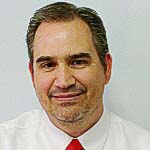Summary
To reach our goal, are all life journeys equal? Dr Kalpakgian delves into Dickens’ David Copperfield to show that the mode of travel really does matter.Every person travels a journey from birth to death, and many live three score and ten years passing through the seven ages of man from infancy to old age.
While all traverse this road with its common beginning and ending, the technique of traveling, the motives and purposes of the journey, and the degree of progress and accomplishment vary from individual to individual.
Dickens’ David Copperfield depicts four modes of traveling that mark the human condition: first, the journey that demands commitment and perseverance inspired by a noble purpose along a direct path to its destination of achievement and fulfillment; second, the journey that begins and stops, goes off course, delays, and fails to reach its goal from a lack of resolution and effort; third, the journey that never begins, never follows a course that leads to a destination, or never ends with any sense of accomplishment or happiness; and, fourth, the journey that races to the finish, winds in a crooked course, and seeks its goal by devious ways and unscrupulous schemes.
In Dickens’ novel young David, an orphan under the authority of a cruel step-father, endures a wretched life, suffering the miseries of child labor pasting labels in a bottle factory.
Desperate to leave this sordid life that reduces existence to mere survival, David resolves to travel an arduous, wearisome journey walking from London to Dover to plead for relief to his only living relation, Aunt Betsey Trotwood. David travels this long distance with single-mindedness, perseverance, and hope.
He seeks the noble goal of a more normal, human existence for a young boy—a life in a home with a family and the benefit of an education.
Though David’s money is stolen and he is forced to sell his waistcoat to a merchant who cheats him, he persists through all the difficulties and obstacles of lonely travel and never loses sight of his goal. For his effort, commitment, and longsuffering, David is welcomed by his aunt’s kindness and tender care.
This episode in the story represents the moral way of traveling that gradually makes progress by honest effort and moral purpose.
From the cold heartlessness of child labor, David enters into the heartwarming affection of a loving aunt.
David never doubts his course of action because of the purity of his intention:
“My mind was thoroughly made up that it must be carried into execution.”
David’s mode of travel serves as the paradigm for the novel.
First, David has a clear destination and a moral purpose. Second, even though David is destitute and desperate, he never cheats, steals, or deceives anyone en route to his aunt’s home. Third, unlike Lot’s wife, David never looks back once he begins the journey.
He does not quit, surrender, or despair, always inspired by the belief that good can come out of evil and that, in the words of the proverb, “where there’s life, there’s hope.”
David’s road from London to Dover delivers him from neglect and cruelty, a dehumanized life, and a dreary existence with no prospects. David’s journey rescues him from a wretched life with no opportunities for joy, pleasure, growth, and freedom.
The right road, the right pace of travel, and the right intention lead a person to the source of happiness.
Mr. Micawber, a cultured ne’er do well, represents a character on life’s journey whose path does not conform to David’s mode of travel. A married man with four children, Micawber—cultivated, educated, and talented—finds himself in debt, unemployed, or penniless throughout much of the story.
However, unlike David who has ambitions and aspirations to overcome his unfortunate lot, Micawber hardly exerts himself, content to await a “remittance” from a family member to relieve him of poverty or to anticipate that “something will turn up.”
Micawber makes no progress in his life’s journey, always changing locations and lodgings but never disentangling himself from debt or providing a stable, secure life for his family. Naively optimistic, Micawber’s fantasy that “something will turn up” does not approach the virtue of hope that inspires David’s journey.
David’s hope is grounded on an undeniable fact, a real possibility—a living relative who was present at his birth and known to his mother and father.
On the other hand, Micawber’s great expectations of sudden deliverance from debt and poverty rest on no solid foundation, neither his honest efforts nor realistic opportunities. His false optimism and sloth have nothing in common with David’s hope and earnestness.
As Mrs. Micawber advises,
“Things cannot be expected to turn up of themselves. We must, in a measure, assist to turn them up.”
James Steerforth, an aristocrat born into gentility and wealth, never completes his education at Oxford, pursues no profession, and has no interest in the prospect of marriage. He lives in a state of comfort, pleasure, and self-indulgence, always seeking diversions to fill the emptiness of his life and venturing into dangerous pastimes to dispel the apathy that haunts him.
His motto is “Ride on! Rough-shod if need be, smooth-shod if that will do, but ride on!” Unlike David who travels from mile to mile from London to Dover, Steerforth storms through life with a “desperate way of pursuing any fancy that he took.”
Unlike David, who completes his education, prepares for the profession of lawyer, saves and lives frugally in order to marry, and uses his opportunities to develop his talents and realize his aspirations, Steerforth’s erratic, unmotivated existence bears no fruits, blesses no one’s life, and buries his talents.
Unlike the affable, convivial Micawber, who marries and raises a family of four children and assumes responsibilities, Steerforth only lives for himself, uses people for his amusement, and lives without any sense of duty.
Like a Byronic hero afflicted with world weariness and ennui, Steerforth lives with a brooding, sinister cynicism about life’s goodness and joys. A young man with the advantages of birth, education, and talent, he wastes his life in idle pursuits and reckless conduct. Steerforth’s roughshod mode of travel leads to self destruction as he drowns in the ocean.
Uriah Heep, on the other hand, is an aspiring young man determined to rise socially, gain power and prestige as a lawyer, and accumulate wealth. He studies at night diligently and works for a prominent lawyer to gain experience in the profession, but he pursues his goals in unscrupulous, dishonest ways.
The epitome of cunning and hypocrisy, Heep poses as “‘umble” and unworthy to conceal his ulterior motives of self-interest and to exploit the weaknesses of others, bribing or blackmailing anyone who can serve his purposes of social advancement and material prosperity. While David travels on his road to success by slow, gradual advances and honest work and effort, Heep’s path to prosperity is crooked and devious—never straightforward.
Forging documents, manipulating the weak and vulnerable, and disguising his corrupt intentions, Heep advances quickly from apprentice to lawyer but in an unethical way. He reaches his goal faster than David, never procrastinates like Micawber, seizes opportunities at every chance, and progresses from poverty to affluence with amazing haste. Heep’s mode of travel eventually leads to jail.
These four roads have different paces of speed, opposing destinations, clashing motives, and conflicting purposes. David travels mile by mile on one main road that leads to Aunt Betsey’s home, seeking a human life in a welcoming family.
Micawber, although he moves from one location to another in and out of debtor’s prison, does not advance to any destination either slowly or hastily and lives to survive rather than working to live and improve. Steerforth, born into wealth, never suffers anxiety about debts and never works to attain any worthy goals or accomplish any noble purpose.
Uriah Heep, while born into poor circumstances like David, lives to climb socially into a higher class, rises from modest circumstances to a position of power, and uses people to his advantage in his ambition for power and prestige.
As Dickens shows, bad motives always lead to poor choices; the wrong road never leads to happiness; the devious way and the frantic pace do harm to others and lead to tragedy; and the life that chooses no road or does not strive to finish the journey with patience, perseverance, and commitment never leads to the joy of accomplishment.

 Seton Magazine Catholic Homeschool Articles, Advice & Resources
Seton Magazine Catholic Homeschool Articles, Advice & Resources













































